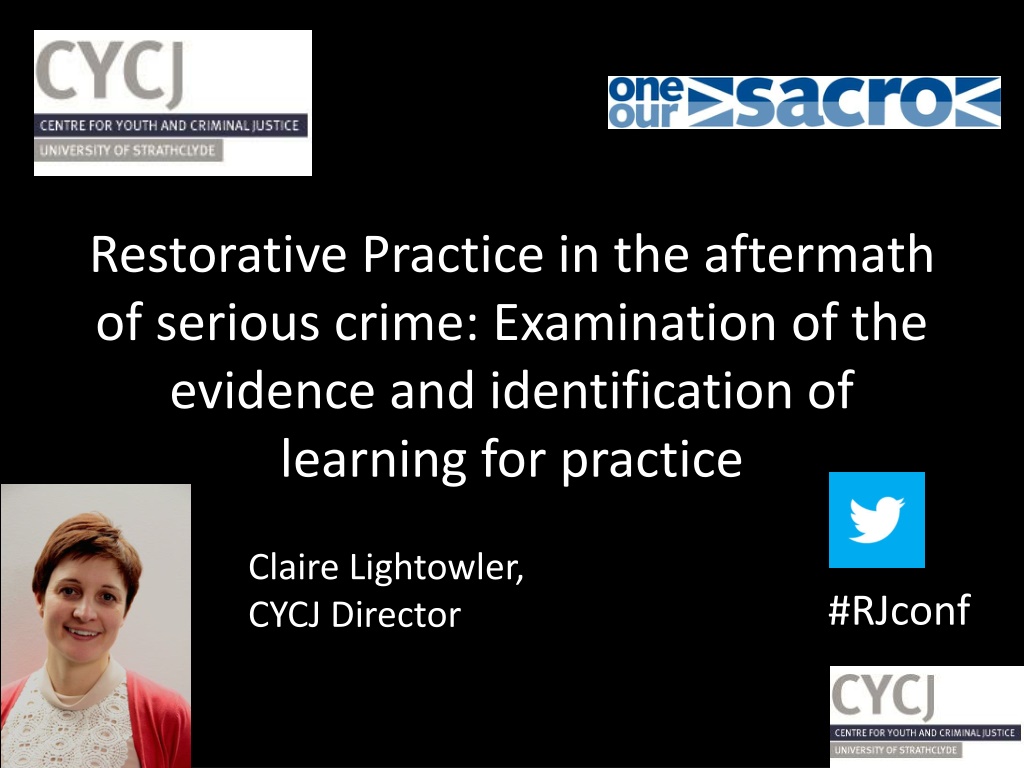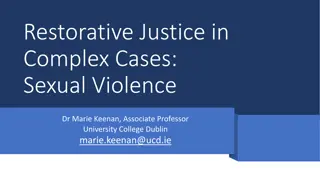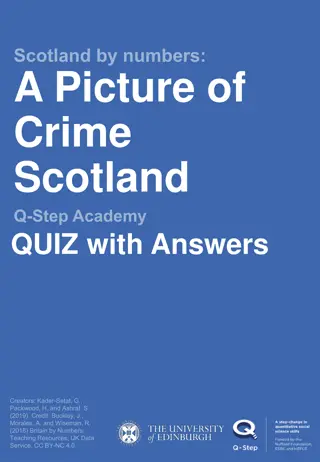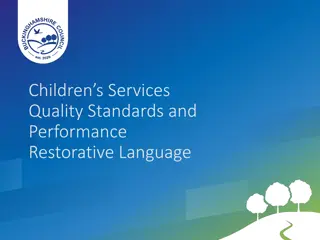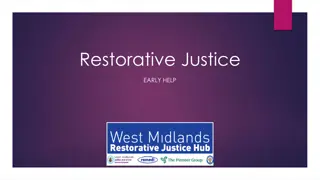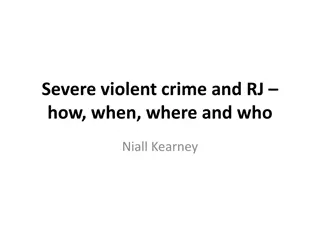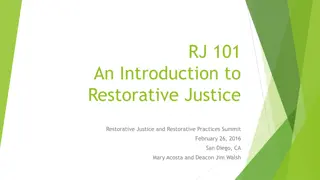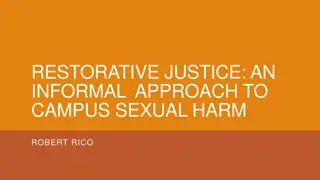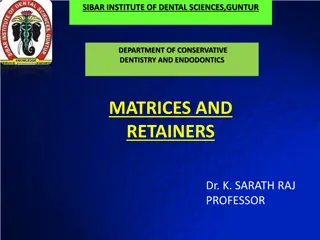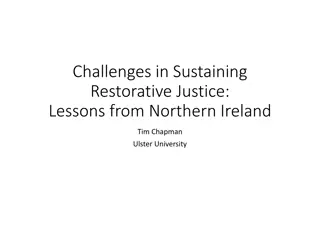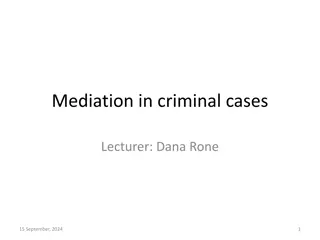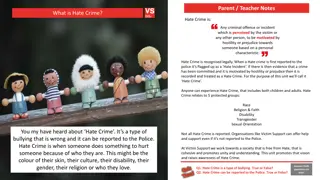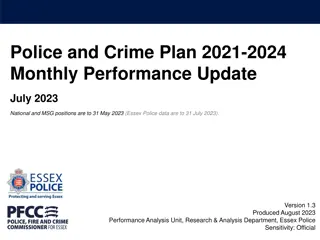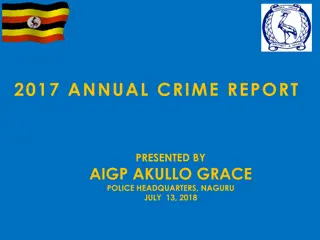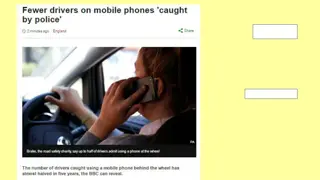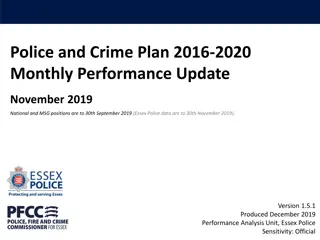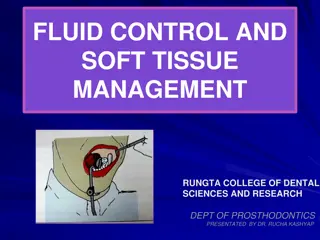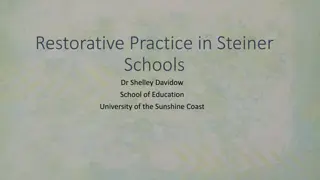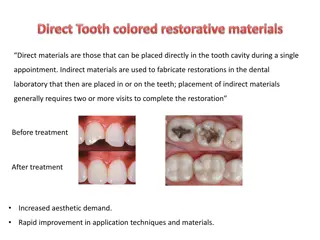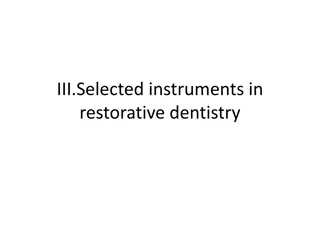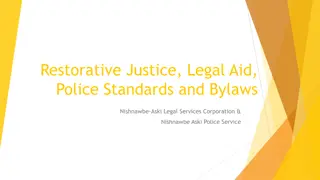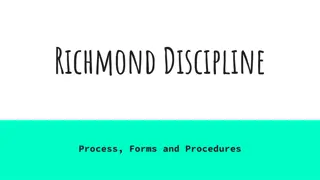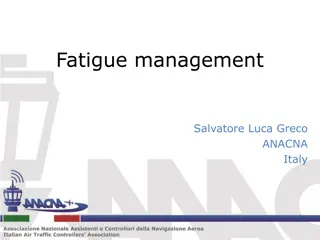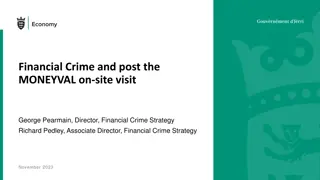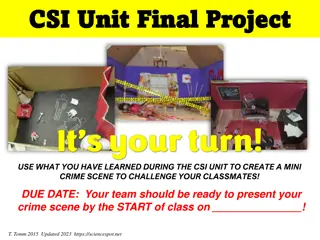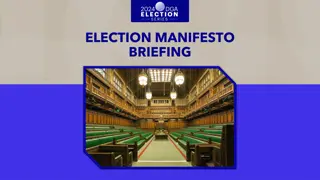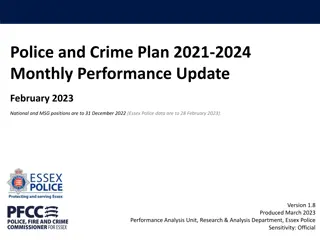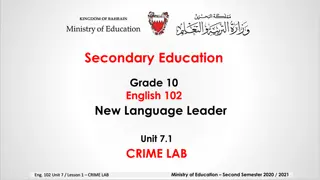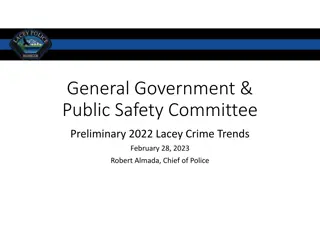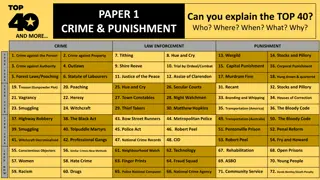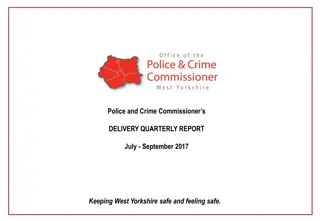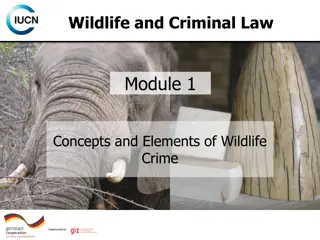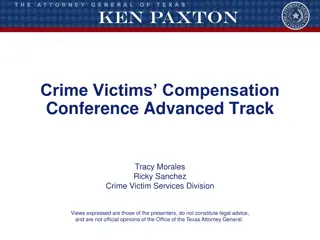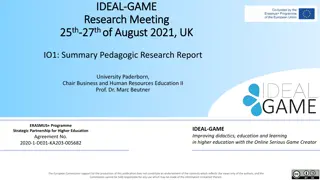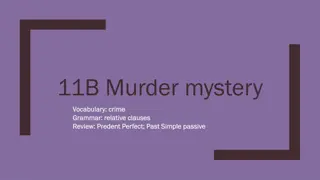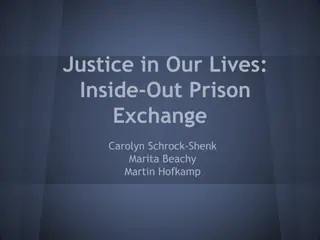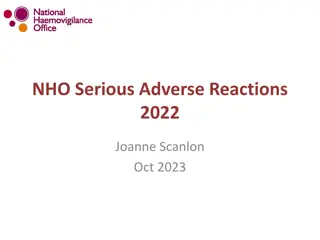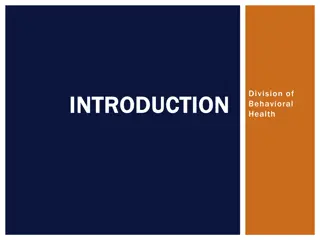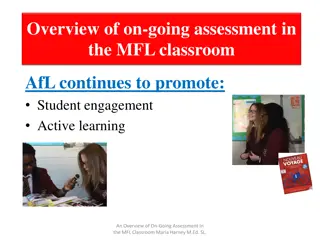Restorative Practice in Serious Crime: Learning for Effective Engagement
Examining the transformative potential of restorative encounters in the aftermath of serious crime, this presentation delves into the essence of restorative justice, emphasizing its role in repairing harm, enabling emotional expression, and fostering moral responsibility. The narrative underscores the challenges, urges action to overcome barriers, and questions the societal vision for Scotland. Legal directives, like the EU Directive and the Victim & Witnesses (Scotland) Bill, are discussed in relation to facilitating restorative justice services. Acknowledging the benefits to victims and the positive impacts on youth justice, this discourse stresses the need for further exploration and implementation.
Download Presentation

Please find below an Image/Link to download the presentation.
The content on the website is provided AS IS for your information and personal use only. It may not be sold, licensed, or shared on other websites without obtaining consent from the author. Download presentation by click this link. If you encounter any issues during the download, it is possible that the publisher has removed the file from their server.
E N D
Presentation Transcript
Restorative Practice in the aftermath of serious crime: Examination of the evidence and identification of learning for practice Claire Lightowler, CYCJ Director #RJconf
How is this relevant to my practice? What am I going to do based on this?
Restorative justice is The process that seeks primarily to address or repair the harm caused by an offence The primary aim of which is to enable people to express their feelings in a safe and constructive way, and to ensure that people take moral responsibility for their part in what happened Scottish Government (2008)
Why have CYCJ and SACRO organised this event?
Transformative potential of restorative encounters
But its challenging Stakes are high We don t have all the answers
Not insurmountable barriers Time to tackle them head on
Why now? What kind of Scotland do we want to be?
EU Directive Nov 2014 Directive 2012/29/EU Member states shall facilitate the referral of cases, as appropriate to restorative justice services Article 12(2)
Victim & Witnesses (Scotland) Bill Stage 2 amendment passed placing duty on Scottish Ministers to make provision for the referral to restorative justice processes. Compromise reached: ability for Scottish Ministers to issue guidance.
Iagree that more consideration should be given to the potential benefits of restorative justice to victims. We already know that it can be useful to youth justice, in particular Justice Cabinet Secretary: Kenny MacAskill
Allowing flexibility Not requiring restorative processes Infrastructure not in place Good practice models not ready
Event today an opportunity to Feed-in to wider RJ discussions Inform the guidance Build personal, organisational & sector capacity Inform future capacity building Contribute to a better understanding of good practice
1. Lawrence Sherman & Heather Strang Restorative Justice: The Evidence, 2007 Review of 36 different restorative programmes seems to reduce crime more effectively with more, rather than less, serious crimes Lessening of trauma symptoms among victims participating in restorative processes after serious crime
Restorative Justice Conferencing (RJC): The Effects of Face-to-Face Meetings on Offender Recidivism and Victim Satisfaction.
2. Vincent Mercer Adolescent sexually harmful behaviour Restorative Justice Co-ordinator for Assessment, Intervention and Moving On (AIM) Project Restorative Conference Facilitator Mediated in cases of arson, robbery, murder & rape
3. Bill Whyte (Edi Uni), Billy Nicol (SACRO) & Niall Kearney (trained restorative practitioner) Developing a Restorative Practice Model Restoration in Serious Crime(RISC): outreach project involving behaviour resulting in death or serious injury
Workshop afternoon You did indicate preferences allocated accordingly Kirsten Park, National Restorative Practices Development Manager, Scottish Prison Service (SPS) Ian McDonough, Service Manager with SACRO
SACRO Halpin Tom Steps Next
Time for questions after each keynote Space for comments & questions at end Professor Sherman and Dr. Strang leaving at lunch
Slides available: www.cycj.org.uk Reflections invited: raisingyouthjustice.org Twitter: #Rjconf RJ survey coming your way!
